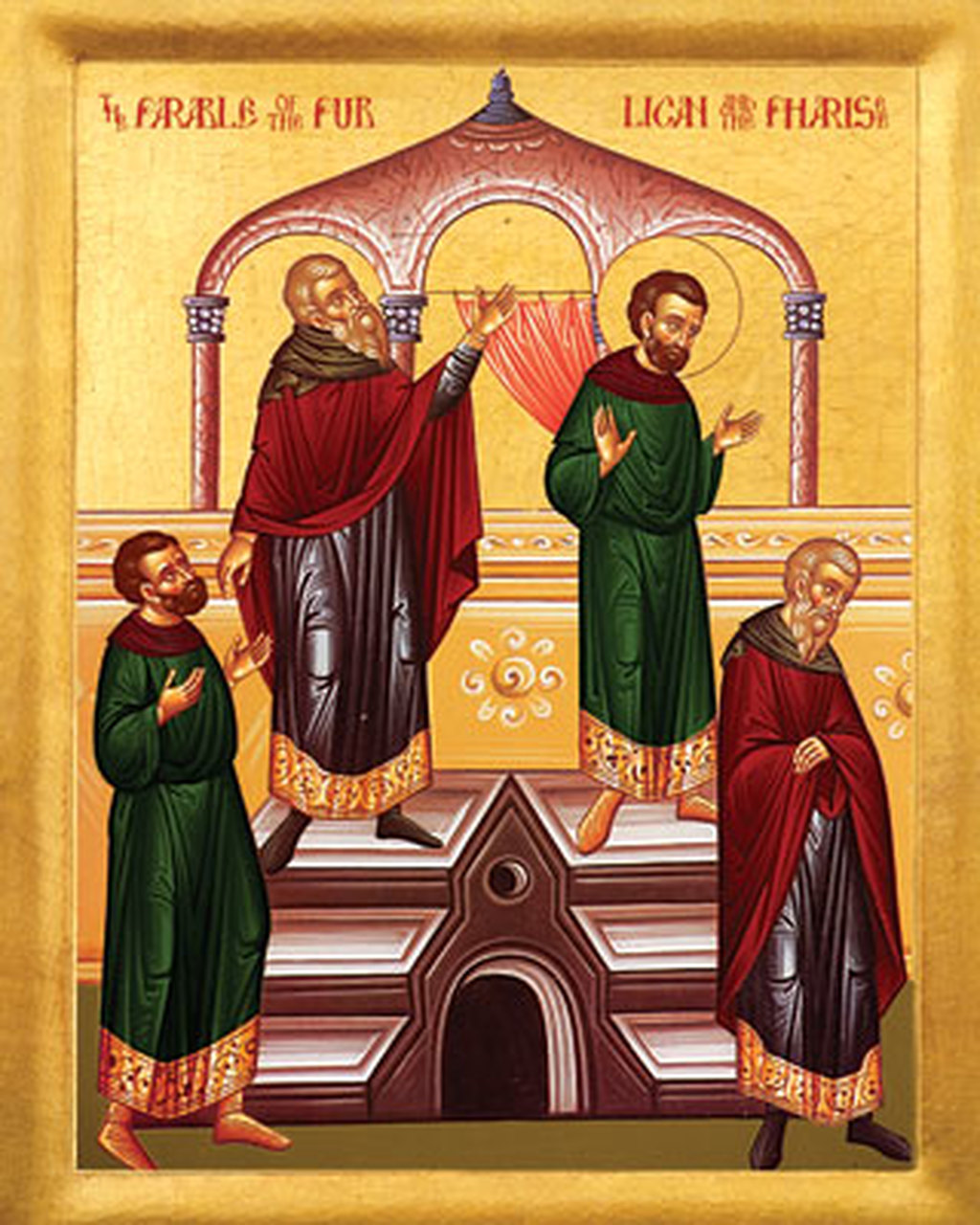 The Gospel reading for this Sunday is Luke 18:10-14. On this and the following two Sundays, the theme is repentance. Repentance is the door through which we enter Lent, the starting-point of our journey to Pascha. And to repent signifies far more than self-pity or futile regret over things done in the past. The Greek term metanoia means 'change of mind': to repent is to be renewed, to be transformed in our inward viewpoint, to attain a fresh way of looking at our relationship to God and to others. The fault of the Pharisee is that he has no desire to change his outlook; he is complacent, self-satisfied, and so he allows no place for God to act within him. The Publican, on the other hand, truly longs for a 'change of mind': he is self-dissatisfied, 'poor in spirit', and where there is this saving self-dissatisfaction there is room for God to act. Unless we learn the secret of the Publican's inward poverty, we shall not share in the Lenten springtime. The theme of the day can be summed up in a saying of the Desert Fathers: 'Better a man who has sinned, if he knows that he has sinned and repents, than a man who has not sinned and thinks of himself as righteous.'
The Gospel reading for this Sunday is Luke 18:10-14. On this and the following two Sundays, the theme is repentance. Repentance is the door through which we enter Lent, the starting-point of our journey to Pascha. And to repent signifies far more than self-pity or futile regret over things done in the past. The Greek term metanoia means 'change of mind': to repent is to be renewed, to be transformed in our inward viewpoint, to attain a fresh way of looking at our relationship to God and to others. The fault of the Pharisee is that he has no desire to change his outlook; he is complacent, self-satisfied, and so he allows no place for God to act within him. The Publican, on the other hand, truly longs for a 'change of mind': he is self-dissatisfied, 'poor in spirit', and where there is this saving self-dissatisfaction there is room for God to act. Unless we learn the secret of the Publican's inward poverty, we shall not share in the Lenten springtime. The theme of the day can be summed up in a saying of the Desert Fathers: 'Better a man who has sinned, if he knows that he has sinned and repents, than a man who has not sinned and thinks of himself as righteous.'- From the introduction to the Lenten Triodion, "The Inner Unity of the Triodion', by Metropolitan Kallistos (Ware)
